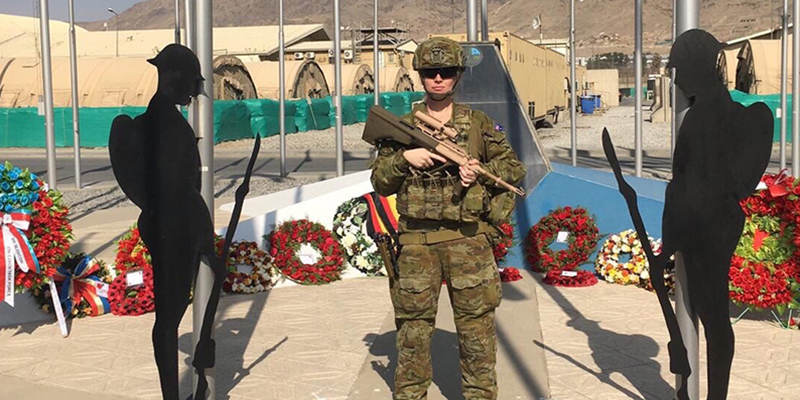The National Health and Medical Research Council (NHMRC) has announced more than $19.7 M in funding for Monash research projects that incorporate diabetes, epilepsy and seizures, infection management, alcohol treatment, acidic blood trial and a new device to deliver treatment to premature babies.
The projects are a part of the Clinical Trials and Cohort Studies grants, where researchers work with participants to establish the evidence base required for better health treatments, policies, practices and outcomes.
The announcement was part of a $75.3 million investment by the Federal Government into world-leading medical research projects to improve the lives of all Australians.
Monash University President and Vice-Chancellor Professor Margaret Gardner AC said: “The level of funding awarded to Monash projects recognises the innovative work our researchers are undertaking to help solve some of the world’s greatest challenges.”
Deputy Vice-Chancellor (Research) and Senior Vice President Professor Rebekah Brown said the funding supports projects that will make a real difference in the lives of patients and their families.
“Monash research is all about addressing the challenges of the age and making transformative change. These research projects address important gaps in our knowledge that will ultimately contribute to new findings that will improve human health, and impact the lives of many people. Congratulations to all the teams involved.”
Deputy Dean of Research for Monash Medicine, Nursing and Health Sciences, Professor James Whisstock, said this latest NHMRC funding recognises the significant breadth and diversity of research at Monash and speaks to our focus on healthy, thriving communities.
“This funding will help continue to progress some of our most important research programs to make a positive difference. Many congratulations to all the researchers and their fantastic teams,” Professor Whisstock said.
The NHMRC-funded projects include:
Investigating the use of antibiotics following surgery – $4,343,709.10
Associate Professor Trisha Peel will explore the important questions about the use of antibiotics following surgery. Infections following surgery lead to significant patient suffering and healthcare costs. The administration of antibiotics at the time of surgery is an important strategy to prevent infections. In patients undergoing heart surgery, it is unknown whether there is an additional benefit in giving longer courses of antibiotics following surgery to help prevent infections or if this will lead to patient harm, such as drug-resistant infections.
The role of epigenetic modifications in the development of diabetic renal disease – $4,897,328
Professor Sam El-Osta has established an international EPICENTRE consortium that will now seek to explore the potential role of epigenetic modifications in explaining the development of diabetic renal disease. Over the last decade, we have developed contemporary genomic technologies and new approaches that specifically characterise epigenetic modifications using overt renal disease as the primary outcome.
A clinical trial to evaluate machine learning prediction model for antiseizure medication in epilepsy – $2,459,115.80
Professor Patrick Kwan has trained a machine learning prediction model to assist neurologists to select the most effective initial antiseizure medication for individual patients with newly diagnosed epilepsy. We will conduct a randomised controlled trial (PERSONAL) to evaluate whether incorporating the machine learning model in initial drug selection can render more patients seizure-free compared to usual care.
Measuring the effectiveness of a Brain-Training App to reduce heavy alcohol use – $948,498.04
Associate Professor Victoria Manning has developed and piloted the world’s first smartphone app that delivers a personalised version of an “alcohol avoidance training” (“AAT-App”). We will now conduct a randomised controlled trial to determine how effective AAT-App is at reducing alcohol use and craving in a large sample of people with alcohol problems who are not currently receiving treatment.
A clinical trial to determine the best treatment for Metabolic acidosis – $1,920,486.60Dr Ary Serpa Neto – Metabolic acidosis is a term that means that the blood is acidic. Patients with this condition are typically very ill and it can be fatal. Currently, no specific therapy exists, but sodium bicarbonate may improve the condition of these patients. The randomised double-blinded clinical trial will treat severe patients with either sodium bicarbonate or inactive fluid to determine the best treatment outcome.
New treatments to reduce febrile convulsions in young children – $3,490,416.30
Professor Simon Craig – will conduct research across 25 hospitals within the Paediatric Research in Emergency Departments International Collaborative (PREDICT) Network to compare the current “wait and see” approach for febrile convulsions to an intervention recommending regular doses of paracetamol or ibuprofen. The research will explore if the new treatment reduces the risk of further seizures occurring in the same illness
Assessing the effectiveness of a new treatment device for premature babies – $1,707,835
Dr Calum Roberts – will conduct a trial to assess a new method of giving surfactant treatment into the lungs of premature babies with breathing difficulties. ‘Supraglottic airways’ are soft plastic devices that are easier to insert and more comfortable than current methods, which are challenging to learn and not possible for some neonatal units. The trial will test the effectiveness of supraglottic airway surfactant treatment, which will allow all babies who need surfactant to receive it in their birth hospital without delay.
For a full list of recipients, please visit the NHMRC website.





